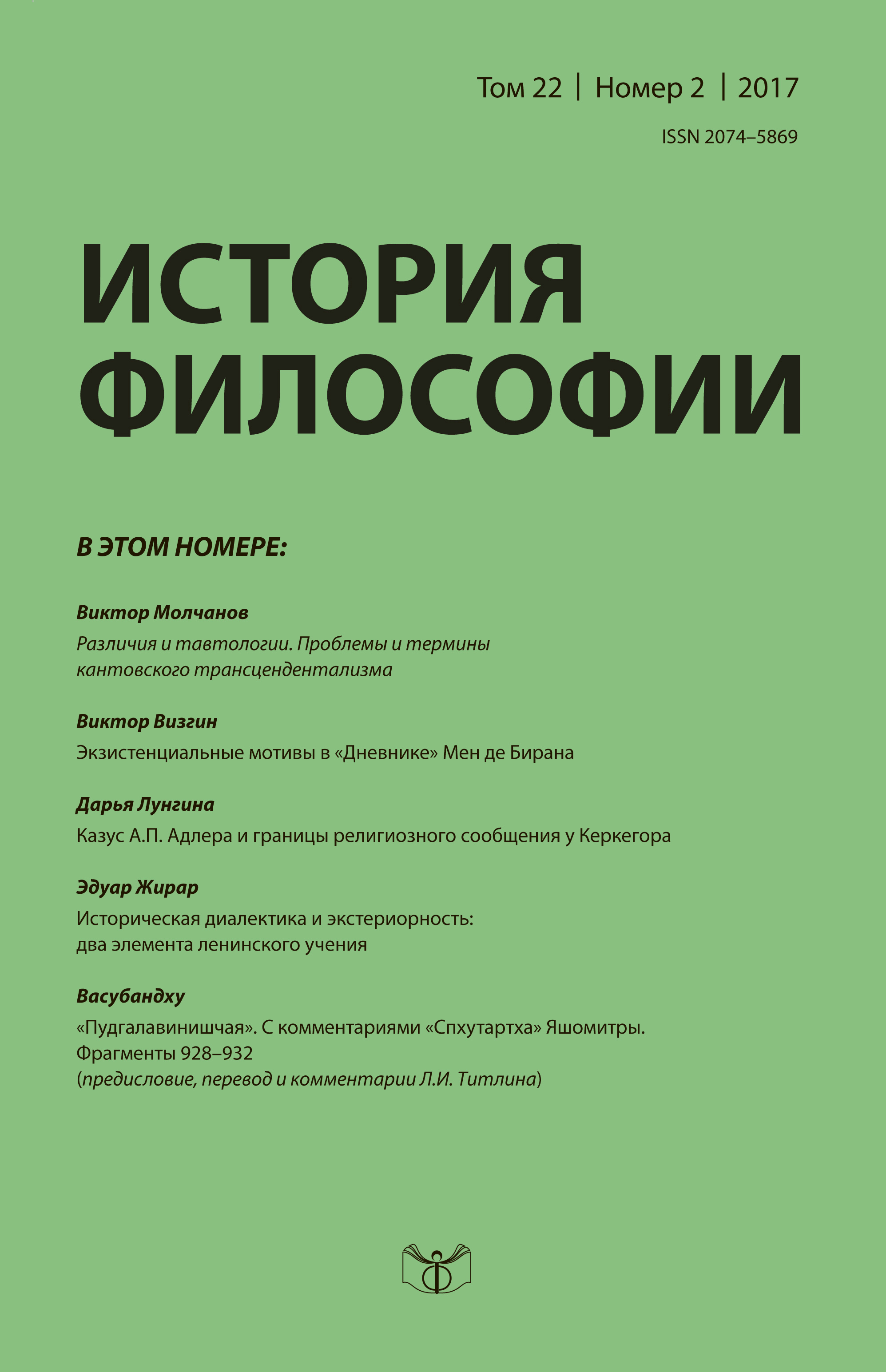Hegel’s Criticism of the Concept of Force in Newton’s Celestial Mechanics
Keywords:
G.W.F. Hegel, I. Newton, celestial mechanics, philosophy of nature, inertia, initial shove, necessity, accident, gravityAbstract
This article examines the problem of Hegel’s criticism of Newton’s system of celestial bodies. Modern works on this topic proceed from the fact that the basis of Hegel’s criticism of Newton’s celestial mechanics based on Hegel’s rejection of the concept of force. In accordance with this interpretation Hegel has some kind of holism in relation to natural phenomena. The phenomena of the natural world should not be subjected to analysis or experiment, because such procedures violate their original natural entirety. With regard to celestial mechanics this means a prohibition on the use of the concept of force, with which Newton analyzes the orbital motion of bodies. In this article the author argues with this understanding of Hegel and puts forward an alternative interpretation, according to which Hegel’s criticism of Newton’s doctrine is due not to a prohibition on analysis, but to a prohibition on the synthesis of two forces, namely, inertial force and gravitational force, since they have a completely different nature according to Hegel. This thesis is confirmed by the fundamental principles of the philosophy of German thinker.

